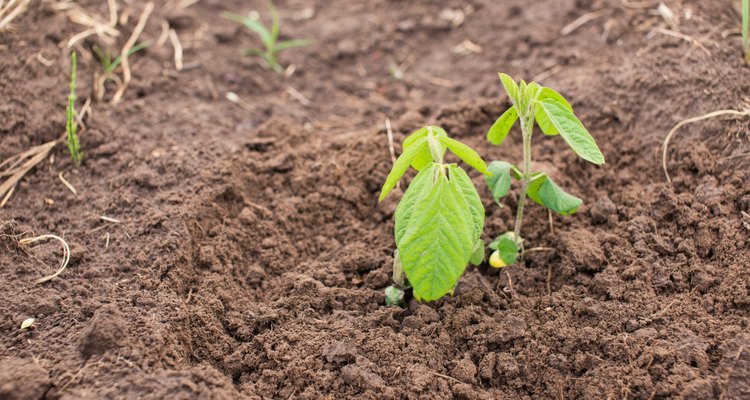
lyosha_nazarenko/iStock/Getty Images
Soy bean sprouts, which are germinated soy beans, have been used for human consumption for more than 5,000 years. Soy bean sprouts have a delicate, distinctive flavor and provide a variety of essential nutrients. You can sprout your own soy beans at home or purchase them at the grocery store year-round.
Calories, Fiber and Carbohydrates
A serving of soy bean sprouts is 1 cup of raw sprouts and has 85 calories, making it a low-calorie food and suitable if you're on a weight loss diet. They contain less than 1g of fiber and around 6.7g of carbohydrates in a 1-cup serving.
Protein
Soy bean sprouts are a good source of protein, a nutrient essential for the repair, maintenance and growth of tissues, organs and cells. One cup of raw soy bean sprouts provides 9.16g of protein. Adults should consume between 46 and 56g of protein daily, as recommended by the National Academies' Institute of Medicine.
Vitamins
Soy bean sprouts provide the B vitamin, folate, which is essential for the synthesis of DNA and red blood cells. One cup of raw soy bean sprouts has 120mcg of folate. Adults need 400mcg of folate daily, according to the National Academies' Institute of Medicine. Soy bean sprouts are also a source of vitamin C and pantothenic acid.
Minerals
Soy bean sprouts are a source of zinc, a mineral essential for proper sense of smell, immune function and wound healing. A 1-cup serving of raw soy bean sprouts provides 0.82mg of zinc. Men need 11mg of zinc daily and women need 8mg, as recommended by the National Academies' Institute of Medicine. Raw soy bean sprouts are also a source of iron and potassium.
Considerations
Soy bean sprouts may be eaten raw or lightly cooked and work well in salads, stir-fries or on sandwiches. Purchase sprouts that are crisp and brightly colored, avoiding musty smelling or wilted sprouts. Store fresh soy bean sprouts in a ventilated container in the refrigerator for up to two days.
Related Articles

How to Sprout Soy Beans

Are Bean Sprouts Good for You?

Avocado Serving Size & Nutrition

Nutrition Information on Blueberries

The Nutrition of 15-Bean Soup

Soy Skin Benefits
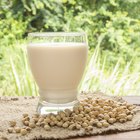
Fiber in Soybeans
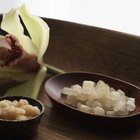
How to Make Soy Body Butter
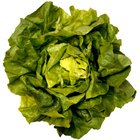
Nutritional Benefits of Butter Leaf ...
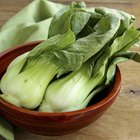
Bok Choy Nutrition

What Are the Benefits of Great Northern ...

How Many Calories Are in a Slice of ...
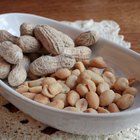
What Is the Shelf Life for Raw Peanuts?

Cooking Edible Soybeans
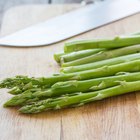
Top Vegetables With Selenium
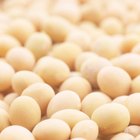
How to Cook Raw Chickpeas or Garbanzo ...

How to Store Alfalfa Sprouts

A List of Foods That Contain Choline

Benzoyl Peroxide-Free Acne Products
Healthy Tuna Salad Recipe
References
Writer Bio
Based in Austin, Texas, Kara McEvoy has been writing professionally since 2007. She worked for three years as a public health nutritionist with the Vermont Department of Health, where she wrote nutrition-related articles for "The St. Albans Messenger." McEvoy holds a Bachelor of Science in nutrition and food science from the University of Vermont.
Photo Credits
lyosha_nazarenko/iStock/Getty Images